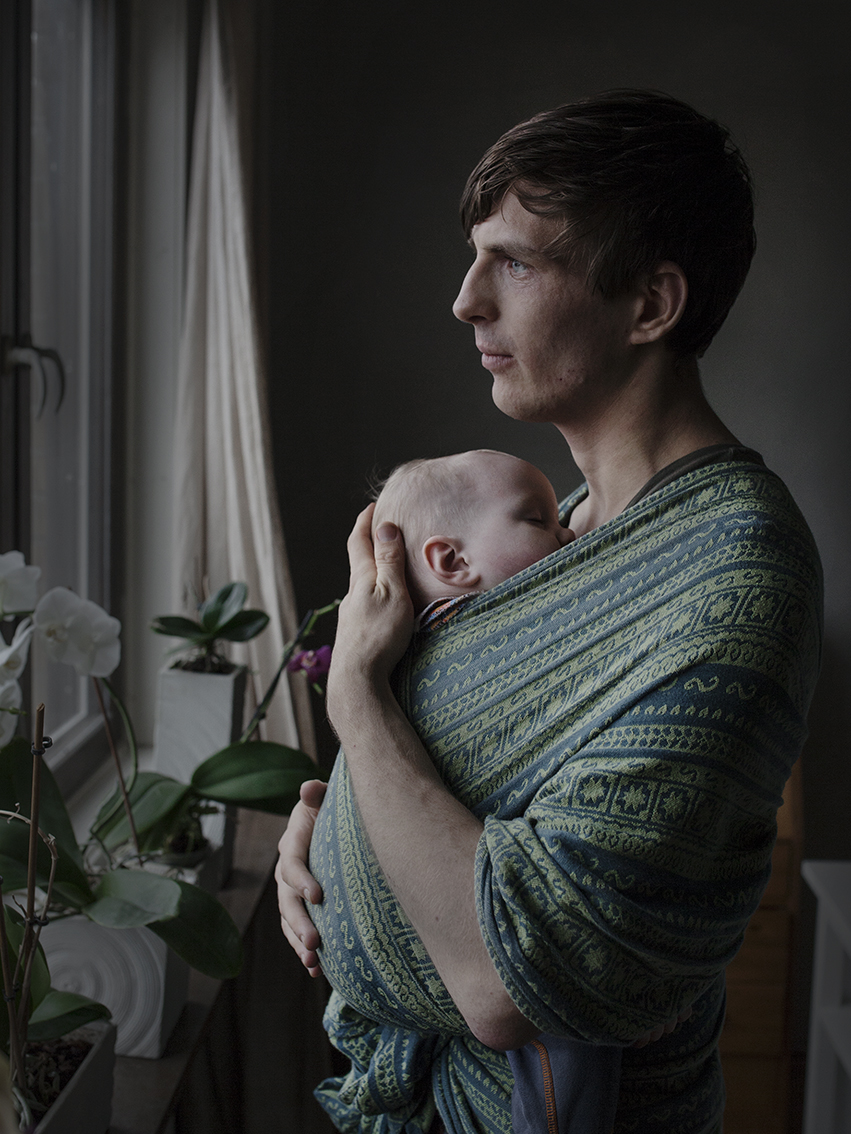Course Syllabus
Gender, Equality, and Sexuality in Scandinavia
Spring 2018
Location: Stockholm
Credits: 3
Core Course: Uppsala
Study Tour: Berlin
Related Disciplines: Gender Studies, Sociology, Anthropology
Program Director: Iben de Neergaard, idn@dis.dk
Program Coordinator: Sara Gjermandsen, sgj@dis.dk. Mark Peters, mpe@disstockholm.se
Faculty Member: Anna Cavallin
Time: Mondays & Thursdays, 14:50 – 16:10
Location: 1E510




Description of course:
Sweden is one of the most gender equal countries in the world and is well-known for its progressive culture supported by forward-thinking laws and legislations. Legalized prostitution (but illegal to purchase sexual services), paid parental leave for all parents, a very strong representation of women in leadership positions, progressive sex education, and equal rights for homosexuals are among the hallmarks of all Scandinavian societies. However, Sweden also has one of the most gender-divided workplaces in the Western world and gender equal policies do not automatically lead to gender equal behaviors.
This course explores how concepts of gender, body, sexuality and race intersect in current debates about changing family structures, children’s rights, and new ethical dilemmas in a changing Scandinavia. For example, some of the recent initiatives discussed in Swedish media and worldwide – a gender neutral approach to children and the recognition of a gender-neutral pronoun “hen” in the new Swedish dictionary, Sweden’s first LGBTQ pool, implementation of a norm-critical approach to teaching and learning, just to mention a few. We will follow public debates on various burning issues and compare and reflect on the differences observed between the United States, Sweden, and Scandinavia, as well as question norms and traditional ways of thinking about gender and sexuality.
By the end of the semester, you will be able to:
- Employ methodologies from critical gender and sexuality studies to analyze the assumptions about gender and sexuality, which inform studies about us as individuals, societies, cultures, etc.
- Focusing on Scandinavia and the US, examine how societies’ construction of gender and sexuality intersects with ethnicity, race, class, age, dis/ability, etc.
- Be familiar with the most “burning issues” in Scandinavian debates about gender and sexuality.
Faculty: Anna Cavallin, PhD
PhD on Sweden in the late 19th century: gender, consumption and education, in 2017 (Department of Literature, Stockholm University). Instructor and lecturer at the Department of Gender Studies, Stockholm University. Previously taught several courses on Swedish culture, literature, and gender for The Swedish Program, Study Abroad Program located in Stockholm. Fields of research include a special focus on literary analysis contextualizing gender perspective.
Panels/Guest lecturers:
- PhD Karin Milles, researcher and lecturer specialized in language from different aspects of gender perspective.
- PhD Anne Bachmann, researcher and lecturer specialized in film and media studies.
- PhD Vendela Grundell, researcher and lecturer, specialized in art and visual media studies.
Field Studies:
- Jan 17: Hallwylska palatset: A guided tour of one of Stockholm’s private palaces from early 20-th century, created by one of the most remarkable, eccentric and unusual women of her time.
- Feb 21: Sex education in Sweden – a workshop with RFSU, a non-profit organization that works for and with an open, positive view of sex education and relationship issues.
Readings
‘Sex & society’ (Ellen Ross & Rayna Rapp, chapter 10 in Sex and Society, Lancaster et al) 1997 Sex & Society.pdf
‘Ethnicity and sexuality’ (Joane Nagel, Annual Review of Sociology, Vol. 26) 2000 Ethnicity and sexuality.pdf
‘Theoretical Perspectives’ (Steven Seidman, in Introducing the New Sexualities Studies 2nd edition) 2011 Theoretical Perspectives.pdf
April S. Callis (2009): ‘Playing with Butler and Foucault: Bisexuality and Queer Theory’, Journal of Bisexuality, 9:3-4, 213-233 Playing with Butler and Foucault.Bisexuality and Queer Theory.pdf __xid-777834_1.pdf
Autumn Elizabeth (2013): ‘Challenging the Binary: Sexual Identity that is not Duality’, Journal of Bisexuality, 13: 329-337 Challenging the Binary Sexual Identity That Is Not Duality.pdf
Janne Bromseth & Renita Sörensdotter (2013), ‘Norm-critical pedagogy’, in Gender Studies, Education and pedagogy, Eds Anna Lundberg & Ann Werner, Swedish Secretariat for Gender Research: Gothenburg, 24-31. Janne Bromseth & Renita Sörensdotter (2013), Norm-critical pedagogy, pg 24-31.pdf
‘A Nordic Nirvana? – Gender, Citizenship and Social Justice in the Nordic Welfare States’ (Ruth Lister, in Social Politics: International studies in gender, state and society, Vol.16.2 2009) Nordic Nirvana__xid-777688_1.pdf
‘Nordic men on parental leave: Can the welfare state change gender relations?’ (Lammi-Taskula, J. in Politicizing Parenthood in Scandinavia) 2006 Nordic Men on Parental Leave.pdf
Michael B. Wells, Anna Sarkadi (2012) ‘Do Father-Friendly Policies Promote Father-Friendly Child-Rearing Practices? A Review of Swedish Parental Leave and Child Health Centers’, J Child Fam Stud (2012) 21: 25–31. Wells and Sarkadi - Do Father Friendly Policies Promote Father Friendly Child Rearing Practices.pdf
Maia Booker, ‘One Photographer Documents Sweden's Amazing Leave Policies’, New Republic, May 30, 2015; http://www.newrepublic.com/article/121928/johan-bavmans-photo-series-swedish-dads-parental-leave
Siim, Birte (2010), ‘Migration, Multiculturalism and Gender – a Nordic Perspective’; in Peter Kivisto & Peter Kraus (eds.) Challenging Power: Equality, Culture and Minorities (fortc.) Siim, Birte - Migration, Multiculturalism and Gender A Nordic Perspective.pdf
Jay Levy, Pye Jakobsson, (2014) Sweden’s abolitionist discourse and law: Effects on the dynamics of Swedish sex work and on the lives of Sweden’s sex workers, Criminology and Criminal Justice. Published online 31 March 2014. Swedens Abolitionist...pdf
Kajsa Ekis Ekman, Being and Being Bought (2013)
‘Porno-chic – Sex and mainstreaming of pornography in mass culture’ (Anette Dina Sørensen, in Generation P? – Youth Gender and Pornography) 2007 Porno-chic__xid-777700_1.pdf
Movies
Something has to break/Nånting måste gå sönder, 2014, Sweden.
Sex on the map, 2012, RFSU & UR, Sweden.
ASSIGNMENTS AND EVALUATION
|
FORMAT |
EVAL. |
CRITERIA |
DEADLINES |
|
Participation |
20% |
Includes attendance and in-class participation: engaged listening, speaking up in productive ways, participating actively in the learning activities, small group discussions, group work etc. The grade will include the following parameters: Active and verbal participation in class discussions and field studies. This includes formal presentation of a burning issue or a dilemma and participation in debates during the semester |
Throughout the course |
|
Reflection paper I |
15% |
A personally based 1-2 page reflection paper, where you respond to a class activity (reading, guest lecture, field trip etc) and communicate your own thoughts and opinions as you reveal the thought process which led you to these conclusions. |
February 15 |
|
Poster |
25% |
Identify and present a concept, a problem or an issue you have come across during the course so far, in the format of a poster where the visual presentation as well as the written, theoretical outline carries equal weight. Further instructions will be handed out from professor. |
March 22 |
|
Final project* |
40% |
Final research paper (5-9 pages) or project (youtube-movie, audio or visual montage, parody, magazine, or maybe a queer political manifesto?). Creative projects must be accompanied by a 2-3 page academic reflection. -The final research paper or project should include a question around gender and sexuality. You are expected to answer that question in an academic manner using the theory and material from class. |
May 7 |
|
*Detailed information about the assignments will be presented in class |
|
|
|
Guidelines for the written assignments: All assignments must be double-spaced, Times New Roman 12-point font, 1-inch margins. At DIS, one page equals 300 words.
You are expected to use correct citing formats (either APA or MLA) on all assignments.
COURSE SPIRIT AND POLICIES:
Mutual learning atmosphere: The course is based on a student-centered approach with a strong emphasis on class discussions. My role as instructor is to facilitate the course and learning process during, but all of us are responsible for creating the most beneficial atmosphere and environment for creation of knowledge. Different learning activities will occur during the course, such as group work, workshops, reflection tasks, field studies, movie- and text analysis and more. In addition to this, you will also be given the opportunity to add your own research and to get insights into the contemporary public debate.
Everyone’s opinion counts: Some of the topics covered in this course could be seen as controversial and sensitive. You should feel comfortable in expressing your personal opinions regarding issues discussed in class, and we are all responsible for creating the discussion climate where this is felt by all participants. In order to attain this, also be prepared to be open to other points of view than your own, and always express disagreement in a respectful and constructive way. See this as an opportunity to broaden your perspective by listening to other opinions. The concept of safe space will be addressed and rules concerning this will be talked through during our first class session.
Laptop and phones: Attention in class is to be focused on the learning process, on class discussions and learning activities. Laptops and/or phones can be used if allowed by instructor for course purposes. Considerations will of course be taken, if you have special needs for a computer for note taking. In these cases, see the teaching & learning Center at DIS for a letter to give to the instructor.
Format and evaluation criteria: You will be evaluated in several ways. Each assignment will let you meet course objectives. All work – including in-class assignments – has to be completed in order to pass the class. Late papers or projects will be marked down with 1/3 of a grade for each day it is late.
Academic Regulations
Please make sure to read the Academic Regulations on the DIS website. There you will find regulations on:
DIS - Study Abroad in Scandinavia - www.DISabroad.org
Course Summary:
| Date | Details | Due |
|---|---|---|